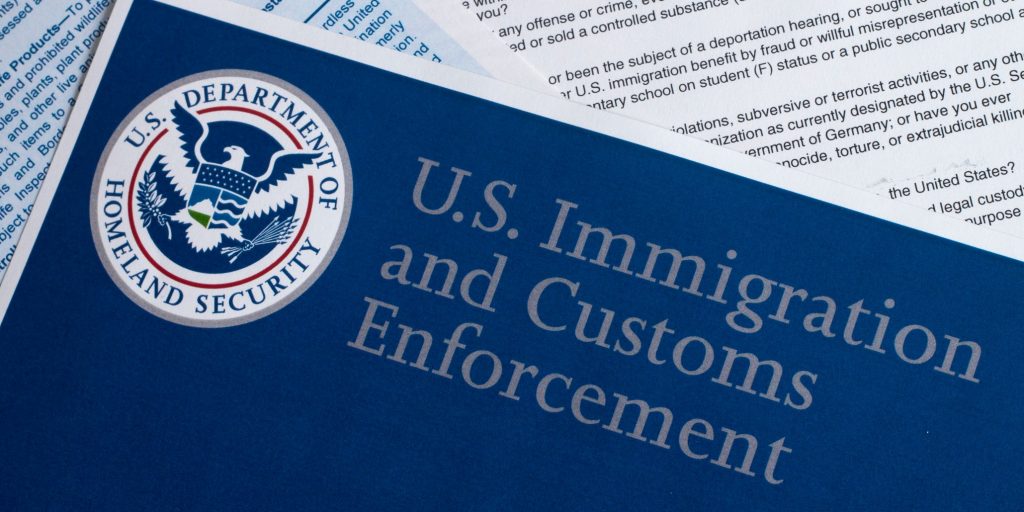Written by Colleen F. Molner, Esq., Partner, N.C. Board Certified Immigration Law Specialist.
Under the Immigration Reform and Control Act (“IRCA”) of 1986, all U.S. employers are required to verify individuals who are authorized to work in the United States, including citizens and noncitizens. The Form I-9 is used for verifying the identity and employment authorization of individuals hired for employment in the United States, and employers must ensure proper completion of Form I-9 for each individual they hire for employment in the United States after November 6, 1986. Employers who are found to violate the verification and employment eligibility requirements may be subject to criminal and civil sanctions.
The U.S. Immigration and Customs Enforcement (ICE) has increased enforcement to ensure that the hiring records of U.S. businesses are in compliance with the laws and regulations that pertain to employment eligibility. As a result, it is important for employers to have a comprehensive I-9 compliance program that addresses I-9 completion, policies, re-verification, audits, and training.
The best way to prepare for an ICE investigation is to regularly conduct internal audits of the company’s I-9 records to ensure that they have been filled out properly and are up to date. The Human Resources employee(s) responsible for completing the Form I-9 should regularly review and be familiar with the “Handbook for Employers, Guidance for Completing Form I-9”, which is available. Employers should also conduct regular training for those who are responsible for completing Form I-9 so that they are capable of spotting issues and fraudulent documents that are presented. Our firm can also offer detailed guidance as to how I-9s should be prepared and completed, and we can also assist with reviewing I-9 records.
How will I know if ICE is coming for an inspection?
ICE initiates an administration Form I-9 inspection process by serving a Notice of Inspection (NOI) upon an employer compelling the production of Forms I-9, and, sometimes, supporting documentation that may include a copy of the payroll, list of the current employees, Articles of Incorporation, and business licenses. The law provides employers with at least three business days to produce the Forms I-9, and ICE agents or auditors will then conduct an inspection of the Forms I-9 for compliance.
Once the inspection is completed, ICE will notify the audited party of the results in writing. The most common notices include:
- Notice of Inspection Results (also known as “compliance letter“): used to notify a business that they were found to be in compliance.
- Notice of Suspect Documents: advises the employer that based on a review of the Forms I-9 and documentation submitted by the employee, ICE has determined that an employee is unauthorized to work and advises the employer of the possible criminal and civil penalties for continuing to employ that individual. ICE provides the employer and employee an opportunity to present additional documentation to demonstrate work authorization if they believe the finding is in error.
- Notice of Discrepancies: advises the employer that based on a review of the Forms I-9 and documentation submitted by the employee, ICE has been unable to determine their work eligibility. The employer should provide the employee with a copy of the notice, and give the employee an opportunity to present ICE with additional documentation to establish their employment eligibility.
- Notice of Technical or Procedural Failures: identifies technical violations identified during the inspection and gives the employer ten business days to correct the forms. After ten business days, uncorrected technical and procedural failures will become substantive violations.
- Warning Notice: issued in circumstances where substantive verification violations were identified, but circumstances do not warrant a monetary penalty and there is the expectation of future compliance by the employer.
- Notice of Intent to Fine (NIF): may be issued for substantive, uncorrected technical, knowingly hire and continuing to employ violations. When ICE issues a NIF to the audited party, ICE will also provide charging documents that specify the violations committed by the employer. The employer has the opportunity to either negotiate a settlement with ICE or request a hearing before the Office of the Chief Administrative Hearing Officer (OCAHO) within 30 days of receipt of the NIF. If the employer takes no action after receiving a NIF, ICE will issue a Final Order.
What happens if ICE finds that our company is not I-9 compliant?
If technical or procedural violations are found during the inspection, employers are given ten business days to make corrections, and they may receive a monetary fine for all substantive and uncorrected technical violations. Employers found to knowingly hire or continue to employ unauthorized workers must cease the unlawful activity, and may be fined, criminally prosecuted, or subject to debarment by ICE, which means that the employer will be prevented from participating in future federal contracts and from receiving other government benefits.
The monetary penalties for knowingly hire and continuing to employ violations range from $375 to $16,000 per violation, with repeat offenders receiving penalties, at the higher end. Penalties for substantive violations, which includes failing to produce a Form I-9, range from $110 to $1,100 per violation. ICE will consider five factors in determining penalty amounts: the size of the business, good faith effort to comply, seriousness of violation, whether the violation involved unauthorized workers, and history of previous violations.
Tips for Staying I-9 Compliant:
- Be prepared to handle an ICE worksite enforcement action and understand its dynamics;
- Conduct regular internal I-9 audits and training and be able to spot issues and fraudulent documents. Contact our office for assistance in addressing I-9 issues, audits, and developing training programs;
- Review company immigration corporate compliance programs taking into account Sarbanes-Oxley considerations at the worksite, corporate due diligence in mergers and acquisitions, subcontractor liability, and E-Verify.

